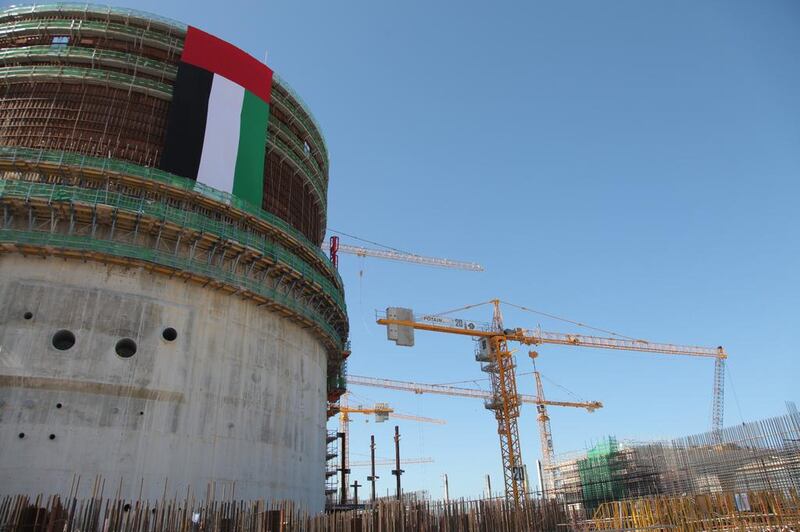With a little more than three years to go before its first nuclear reactor goes live, Abu Dhabi is racing to recruit its first generation of nuclear workers.
Emirates Nuclear Energy Corporation (Enec), the government company charged with building and operating the Arab world’s first civil nuclear power plant, is looking for UAE high school graduates to join a fully funded vocational training programme.
The Energy Pioneers programme, sponsored by Enec and the Federal Authority for Nuclear Regulation, grooms Emiratis for a wide range of roles.
These run from reactor operator to radiation protection technologist, and include an internship in South Korea with Enec’s partners there or in Geneva with Cern, the European Organisation for Nuclear Research.
Efforts like the training programme, which is taking applications for its next class in February, are just one of many aimed at helping Enec to meet its target of a 60 per cent local workforce by 2020 – the same year Enec is scheduled to bring its fourth and final planned reactor online.
The reactors at Barakah, an unpopulated site 300 kilometres down the coast from the capital, are due to produce a quarter of the country’s power once fully online.
At the time the UAE announced its nuclear programme in 2008, it had only one nuclear engineer - Hamad Al Kaabi, today the UAE’s permanent representative to the International Atomic Energy Agency.
“We understand this challenge very well,” said Mr. Al Kaabi.”
Today we have more bandwidth in terms of specialised skills. We have more people in the pipeline, whether it’s people in engineering programmes abroad or people being trained in the UAE.”
The challenge in recruiting a skilled workforce is compounded by a global shortage of nuclear know-how.
“Massive retirements” are expected in the coming years as the first generation of nuclear experts ages, said Chung Bum-jin of South Korea’s Kyung Hee University in a presentation to the International Congress on Advances in Nuclear Power Plants this year.
In the past decade, nuclear planners have fretted over a shortage of students entering the field, which received a public relations setback after the 2011 triple meltdown at Japan’s Fukushima Dai-Ichi plant.
The industry must resort to measures such as extending the retirement age of its experienced workers as an estimated 430 new nuclear power plants are built in the coming 16 years, with that growth centred in nuclear newcomer countries like the UAE.
ayee@thenational.ae





